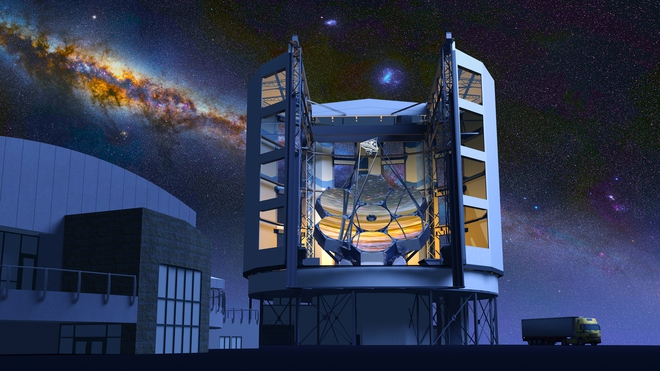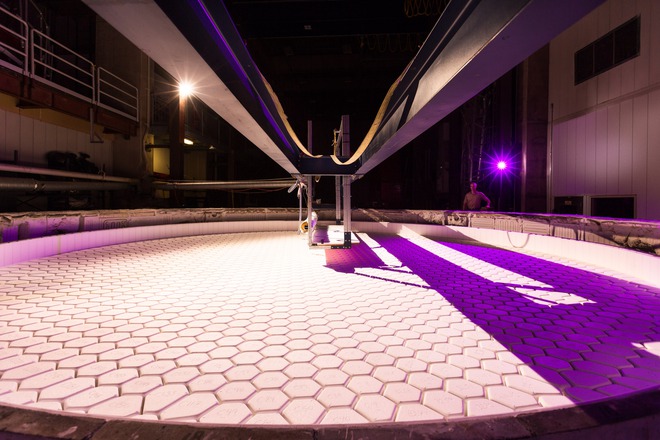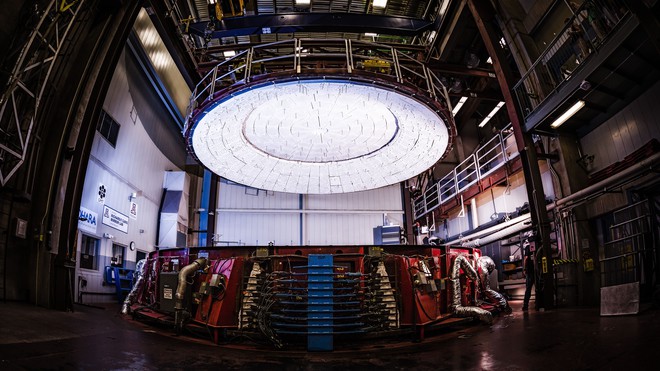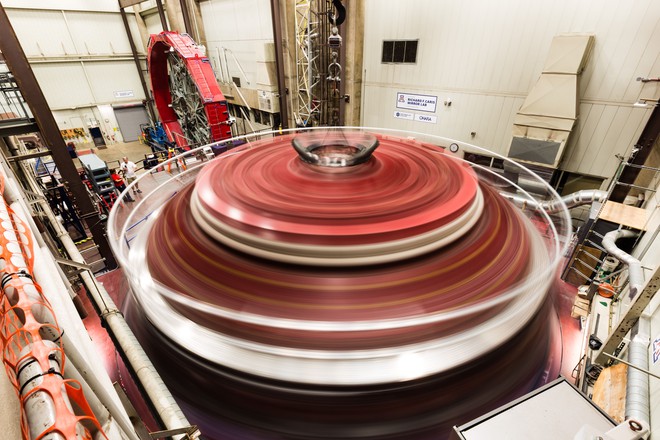It will be one of the most sophisticated “eyes” a man has!
Huge space is not the only place in the telescope, even on Earth we can also build the most delicate eyes humanity has ever created to look up to the sky. In lands near the Chilean Sea, scientists from the United States, Australia, Brazil, South Korea and Chile are collaborating on a billion dollar project: the Magellan Giant Telescope with 10 times the power of observation, the Hubble Space Telescope.
Recently, the Magellan project team announced that it is gradually creating six of the seven largest mirrors ever built; reflective devices allow the team of astronomers to see farther than any previous telescope. The process of manufacturing the sixth largest mirror in the world with a diameter of 8.4 meters will take four years. It was supposed to be a big event for anyone interested around the world, but since the Covid-19 outbreak is still complicated, the team of mirror-mounting engineers of 10 still have to work in a low-key lab.
“The most important part of a telescope is the mirrors that catch light,” said James Fanson, head of the Magellan Giant Telescope project. “The larger the mirror, the farther the view into the universe is and the more details are present in the details. The distinctive mirror design of the Magellan Giant telescope includes the seven largest mirrors in the world. The manufacture of the sixth mirror is a big step towards the completion of the project. Once a telescope is operational, it will produce images 10 times sharper than the data observed by the Hubble Space Telescope. The discoveries made by this mirror will change our understanding of the universe ”.
The process of creating a giant mirror involves the melting of almost 20 tons of E6 glass – a high purity, low expansion borosilicate material. At the maximum oven temperature, the glass can reach 1,165 degrees Celsius; They are heated for 5 hours in a special oven rotating at 5 rpm.
The mold is the biggest mirror in the world.
The E6 glass is distributed evenly over the mold.
Once the furnace has reached the maximum temperature, the molten glass will be cooled for 1 month and the furnace will continue to run at a slower speed than before. This action releases the stresses deposited in the glass structure and hardens the liquid glass assembly in the mirror. It will take another 1.5 months for the mirror to cool to room temperature. The team of experts will polish the mirror over the next 2 years so that the mirror surface can achieve the required precision.
The first two completed mirrors are under construction in Arizona. The remaining four panels, including the sixth, which was cast earlier this month, are in various stages of finishing. The final piece of the world’s sharpest “eye” is expected to be cast in 2023. The eighth mirror will go into production soon after, as a backup of the protective case.
By the end of the decade, all of the giant Magellan’s telescope assemblies will be transported through Chile’s Atacama Desert, spanning more than 8,000 kilometers to one of the most efficient astronomical observatories in the world. With clear skies all year round, less light pollution, and gentle winds, Chile’s desert is home to the sharpest cosmic images we’ve ever taken.
With the giant Magellanic telescope in operation, the 368 square meter mirror could clearly see the engravings on a coin nearly 160 kilometers from the telescope. Magellan’s clarity is ten times that of its “predecessor” the Hubble Space Telescope, four times that of the James Webb Space Telescope about to be launched into space.
“The unprecedented combination of light capture, efficiency and image resolution will allow us to achieve breakthroughs in all areas of astronomy, especially in places of love. High resolution application, such as the project in search of other ‘Earths’, ”said Rebecca Bernstein, scientific director of Project Magellan.
“We will have a unique ability to study planets at high resolution, which is the key to understanding if a planet has a rocky surface like Earth, if the planet has a rocky surface. Water, if the planet’s atmosphere has any sign of life ”.







